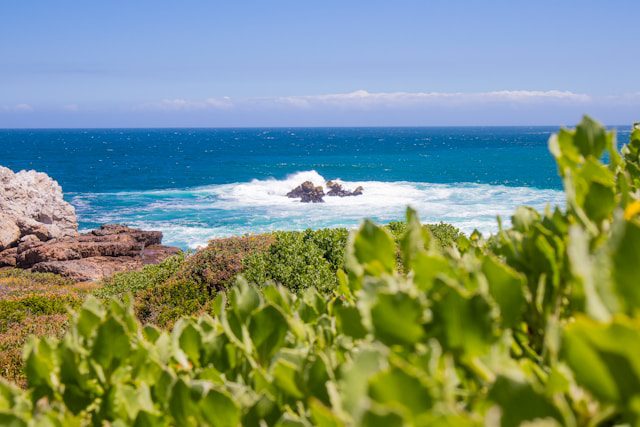Africa is literally breaking apart—at a speed that has shocked scientists. A vast tectonic rift stretching from Ethiopia to Mozambique is widening, and new research suggests that a massive ocean could form much sooner than we thought.
Geologists once believed this continental breakup would take tens of millions of years. Now, fresh data indicates it could happen in as little as a million years—or even faster. This shift won’t just change Africa’s landscape—it will reshape global geography, ecosystems, and even economies.
The African Rift: A Continent in Motion
At the heart of this transformation is the East African Rift System (EARS), a network of cracks where two tectonic plates—the Somali Plate and the Nubian Plate—are pulling away from each other.
- Speed of separation: The plates are moving apart at about 0.8 cm per year—faster than expected.
- Major fault zones: The rift runs through Ethiopia, Kenya, Tanzania, and down to Mozambique.
- Visible cracks: In places like Ethiopia’s Afar region, massive fissures have already formed, with some stretching 60 kilometers long.
A Timeline That’s Getting Shorter
A 2024 study from geophysicists at Tulane University suggests that we might see the first signs of ocean formation within 1 million years, possibly even faster if earthquakes and volcanic activity accelerate the process.
In fact, back in 2005, over 420 earthquakes in just two weeks caused a dramatic 60-km-long rift to appear in Ethiopia. What was thought to take centuries happened in mere days—a stark reminder of how unpredictable Earth’s movements can be.
The Birth of a New Ocean: What’s Happening Beneath Africa?
This isn’t just another crack in the ground. The rift is filling with magma, slowly transitioning from continental crust to oceanic crust—the same process that created the Atlantic Ocean millions of years ago.
- A rare opportunity: The East African Rift is the only place on Earth where oceanic crust is forming on land in real-time.
- Past examples: This is the same process that broke apart South America and Africa over 100 million years ago, leading to the Atlantic Ocean.
Geologists say this transformation is unstoppable. Eventually, seawater will flood into the rift, creating a brand-new ocean, permanently splitting East Africa from the rest of the continent.
How Africa’s Landscape Will Change Forever
The formation of a new ocean will redraw the map of Africa, creating new coastlines and even changing the continent’s economy.
Expected Impacts of Africa’s New Ocean
-
New Borders & Coastlines
- Countries like Uganda, Zambia, and Rwanda could become ocean-bordering nations.
- The Horn of Africa (Ethiopia, Eritrea, Djibouti, and Somalia) may break off as a new landmass, forming an island like Madagascar.
-
Economic Shifts & Trade Opportunities
- New shipping routes and ports will emerge, transforming landlocked nations into maritime economies.
- Coastal cities will boom, but inland regions may lose economic significance.
-
Ecosystem Transformations
- A new marine ecosystem will develop, introducing new fish species and biodiversity changes.
- Some regions could face flooding, similar to how low-lying areas struggle with rising sea levels today.
-
Infrastructure Challenges
- Roads, railways, and cities near the rift will have to adapt or relocate as seismic activity continues.
- Countries will need to invest in earthquake-resistant infrastructure and disaster preparedness plans.
The Race to Understand Africa’s Breakup
The tectonic forces splitting Africa are unstoppable, but scientists are racing to refine their predictions.
- Satellite monitoring is tracking plate movements in real time.
- Seismic studies are mapping underground magma flow.
- Geological surveys are updating models to predict when the ocean will officially form.
The Big Question: Will an extreme geological event—like a major volcanic eruption or a series of mega-earthquakes—accelerate the process?
FAQ: Africa’s New Ocean Explained
How long will it take for Africa to split completely?
Estimates suggest 1-5 million years, but unexpected geological events could speed things up.
Where will the new ocean form?
It will develop along the East African Rift, with the first oceanic basin likely appearing in Ethiopia’s Afar region.
Will there be more earthquakes and volcanoes?
Yes. As the plates move, earthquakes and volcanic eruptions will increase, particularly in Ethiopia, Kenya, and Tanzania.
Is this similar to how the Atlantic Ocean formed?
Exactly. The same process split South America from Africa over 100 million years ago.
Could this affect global sea levels?
Not directly, but new coastlines and ocean currents could impact global climate patterns.













Leave a Reply